#knollys family
Explore tagged Tumblr posts
Text
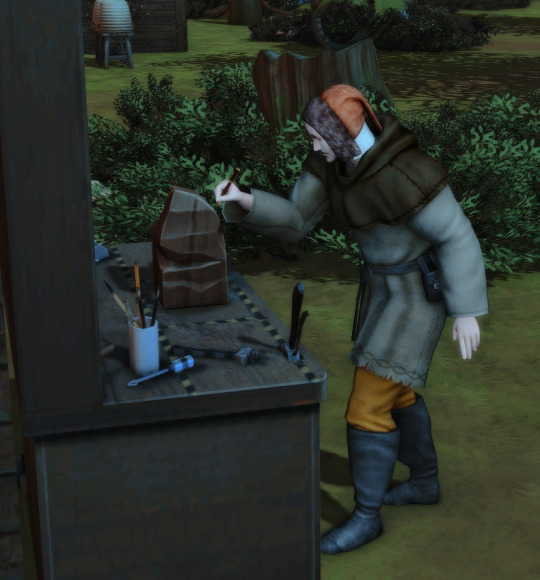


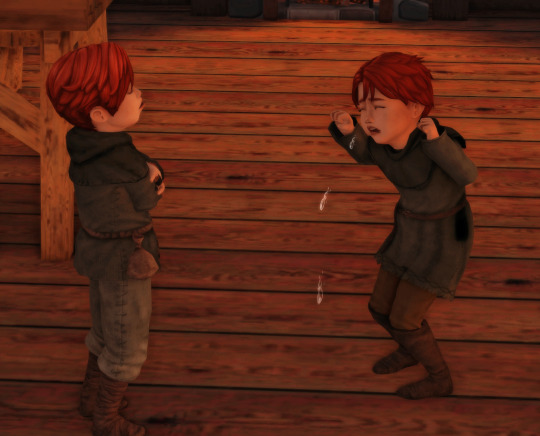
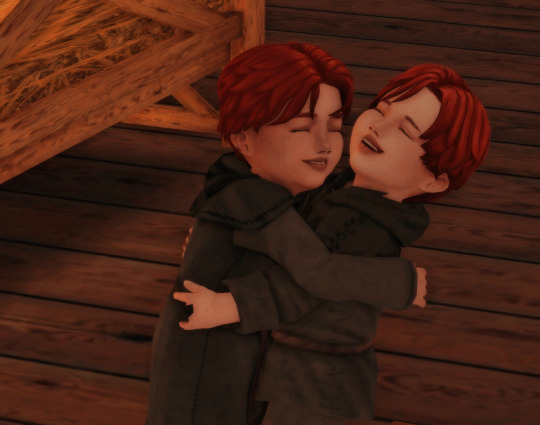
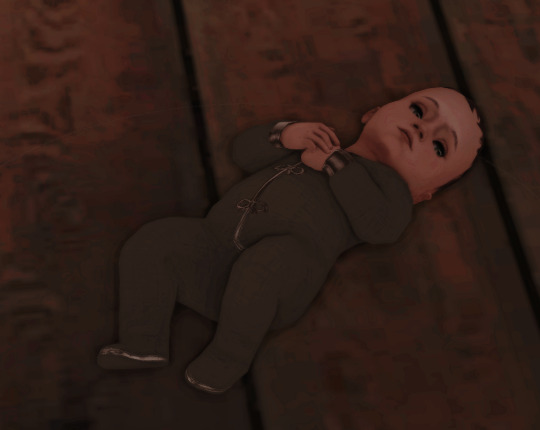

Fall - 1305
John made some toys for the twins. They seem to be doing good even though Alaric who is younger than Hugh loves to tease him.
Hugh enjoys hugging his twin no matter how he treats him.
Henry aged to infant.
(He survived his roll)
#sims 4#sims 4 gameplay#ultimate decades challenge#ts4 decades#sims 4 decades challenge#knollys family#medieval legacy#sims 4 legacy#UDC 1305
55 notes
·
View notes
Text
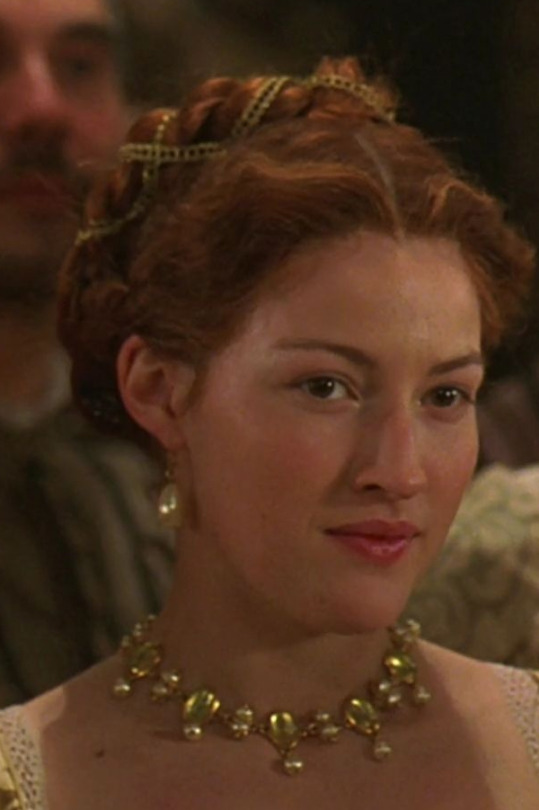
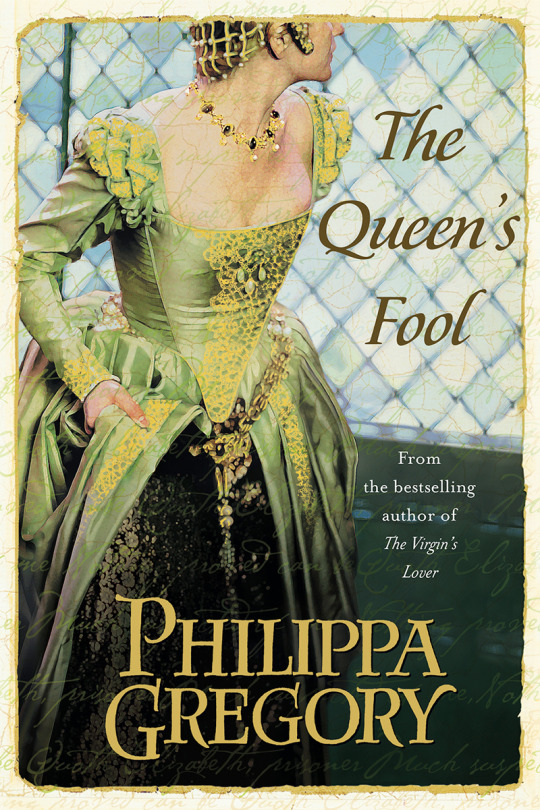
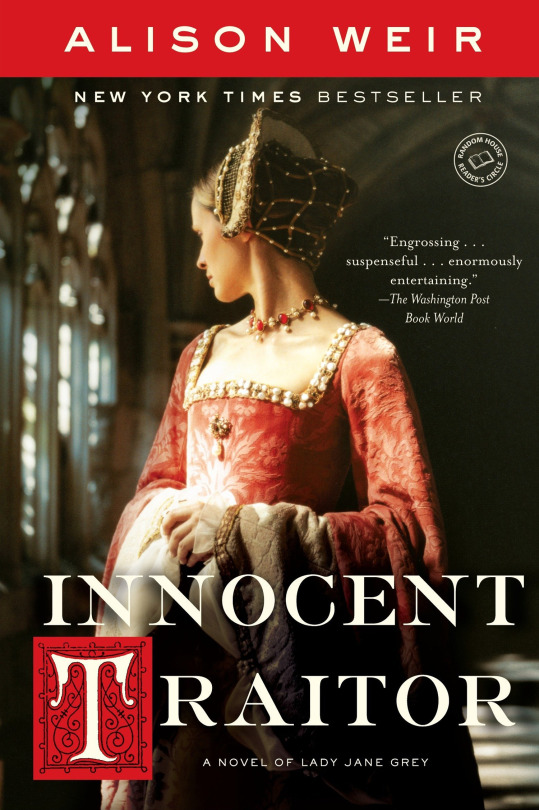
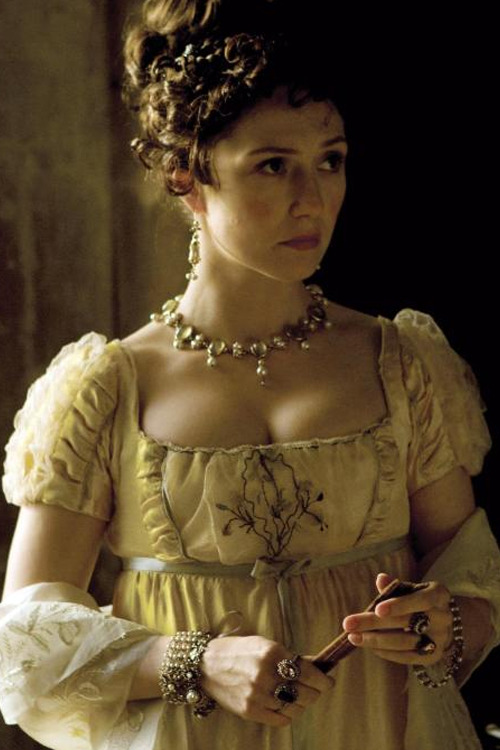
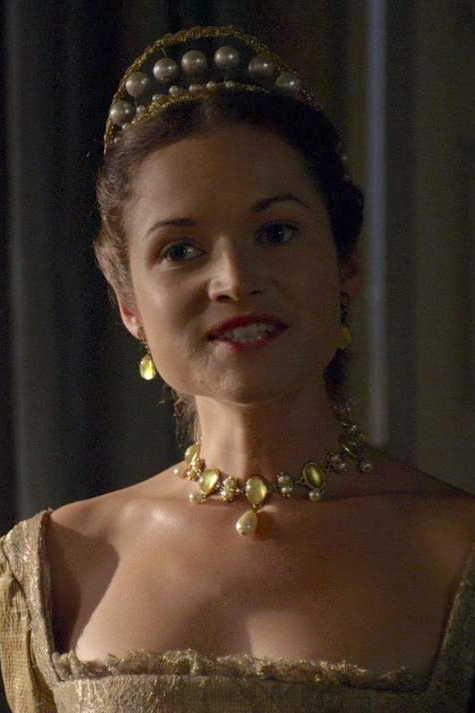
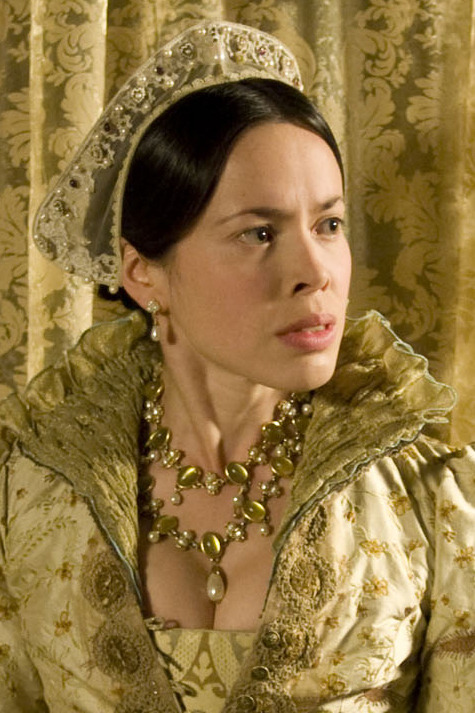
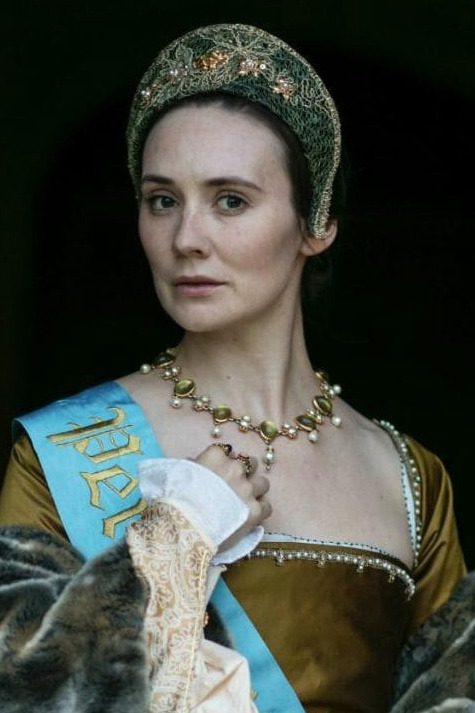
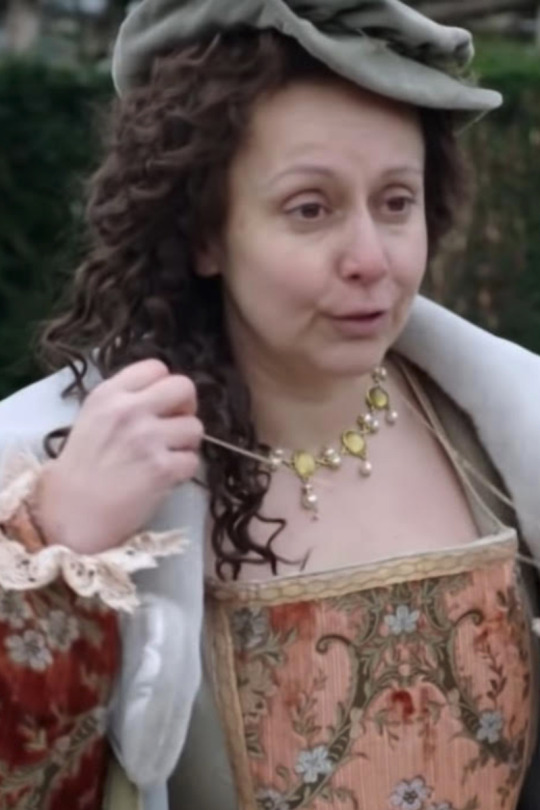
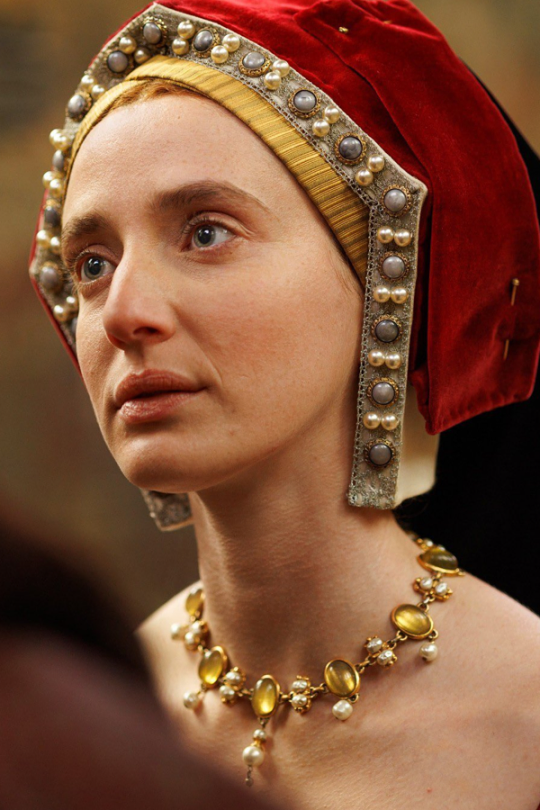
These amber necklaces made their first appearance in the 1998 film Elizabeth, where they were worn by several ladies-in-waiting, including Kelly Macdonald as Isabel Knollys (pictured) and Emily Mortimer as Kat Ashley.
Because quite a few were made, all of the necklaces documented here may be "different," though they all clearly come from the same set. Thus, for the purposes of documentation, Recycled Movie Costumes considers them "the same."
In 2003, one of the necklaces appeared on the cover of Philippa Gregory's The Queen's Fool. In 2007, it was seen on another book cover - this time photoshopped red on Alison Weir's Innocent Traitor.
In 2009, the necklace was worn by Carice van Houten as Maria Oldknow in From Time to Time.
In 2010, one necklace was worn by Joanne King as Jane Boleyn née Parker, Viscountess Rochford in the fourth season of The Tudors, and later that same year, two of the necklaces were worn by Fiona Hampton as Lady Matilda in The Sarah Jane Adventures.
In 2016, Claire Cooper was spotted wearing one of the pieces as Anne Boleyn in Six Wives with Lucy Worsley.
In 2021 it was worn in The Boleyns: A Scandalous Family on an extra playing Margaret of Austria, before being used in 2024's Wolf Hall: The Mirror and the Light, where it was seen around the neck of Lilit Lesser as Princess Mary Tudor.
256 notes
·
View notes
Text
My long overdue appreciation post and fan edit for "The Virgin Queen"
It's one of my favourite adaptation along with "Elizabeth." Yes, I did watch TVQ for Tom Hardy but I stayed for Queen Elizabeth I. Such a selfless, strong, insanely intelligent ruler and politician. I even fell more in love when I did research about her and her rule. Then my heart was ripped into tiny bits and pieces when I had an in-depth read about her friendship with Robert Dudley. Then my wig was snatched and flew all across Asia when I read about the love triangle with Her Majesty, Robert Dudley, and Lettice Knollys. And Robert's alleged betrayal to Elizabeth. Smh men.
The betrayal she's experienced since her childhood especially with her family surely made her the way she is. The men in her life had completely and utterly failed her even Robert. Men remain to be the way they are, don't they? A complete utter disappointment and the birth giver to destruction and corruption.
Anyways, she's one of the female monarchs in history that I look up to. And I really enjoy the show, "The Virgin Queen." The post-death scene of Robert made me cry that's why I made this fan edit. Teehee xx
#the virgin queen#tom hardy#robert dudley#queen elizabeth i of england#british monarchy#elizabeth i#period drama
12 notes
·
View notes
Text
ON THIS DAY - 26 December 1605
On This Day (26 Dec) in 1605, Penelope Devereux and Charles Blount, 1st Earl of Devonshire, 'married' in a clandestine ceremony held at the Earl's Essex home of Wanstead Hall.
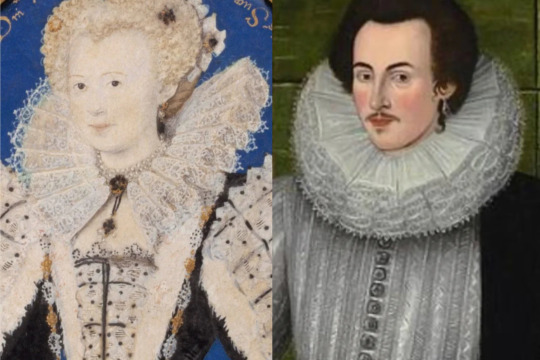
Penelope Devereux had been married to Robert Rich, 3rd Baron Rich since Jan 1581, shortly before her 18th birthday. Despite this unhappy and incompatible marriage, the couple produced four children that survived to adulthood, including an heir, Robert (later 2nd Earl of Warwick), and 'a spare', Henry (later 1st Earl of Holland).
Penelope and Charles appear to have began their 16 year long affair in the final months of 1590. There was previous acquaintance with the family, with Charles having fought at the Battle of Zutphen in 1586, alongside Penelope's cousin by marriage and likely one-time paramour, Sir Philip Sidney. The couple made great efforts to keep their relationship private - they lived separately and did not mention each other in correspondence - with Penelope continuing to portray herself as a loving and obedient wife, whilst spending time with Charles at his and mutual acquaintances's homes, including Wanstead and Essex House. Six children were conceived from this affair, born between 1592 and 1606, of which Charles claimed paternity.
In Nov 1605, in the immediate aftermath of the failed Gunpowder Plot, a week-long hearing took place at London's ecclesiastical court, headed by Archbishop of Canterbury Richard Bancroft. Likely given Penelope's close proximity to the plot (as her brother-in-law, Henry Percy, 9th Earl of Northumberland had been arrested on suspicion of misprision), the timing of the hearing is significant; prior to this, it appears that her husband tolerated the affair and illegitimate children, given Penelope's good standing within the royal courts. Penelope was sued on the grounds of adultery, to which she confessed, providing all details of their years-long affair.
On 14 Nov, the court granted the divorce a mensa et thoro - authorising the legal separation, proclaiming that the spouses no longer needed to co-habit. However, the marriage was not legally dissolved, which would have required an act of parliament, and led to the illegitimacy of their children. Therefore, the couple were ordered to live in celibacy, with remarriage not permitted during the other's lifetime.
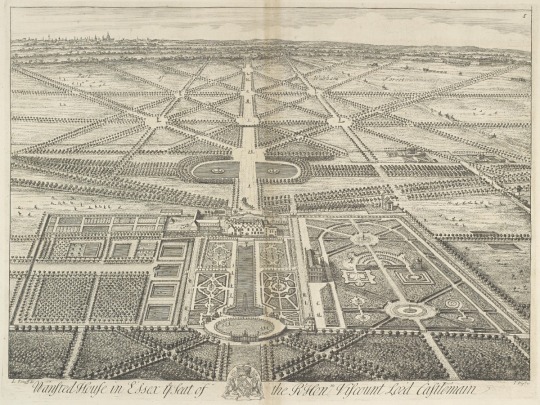
Despite this order, on 26 Dec, Penelope and Charles made the decision to undergo a secret marriage ceremony at Wanstead, performed by the Earl's private chaplain, William Laud (who himself would be nominated as Archbishop of Canterbury in 1633). When knowledge of their union became known to James I, Penelope born the brunt of his anger - he viewed her one of the 'dominant' and 'manipulative' women of whom he had expressed fear and paranoia throughout his reigns in Scotland and England. Whilst Charles remained as a strong source of support and diplomacy for James, including his participation in the trials of the Gunpowder Plotters in Jan 1606, Penelope was punished - she was removed from her role as lady of the Queen's bedchamber, and effectively banished from court, as her mother Lettice Knollys, Countess of Leicester, had been before her, following her secret marriage to Robert Dudley in 1578.
Their marriage, which had taken place in defiance of canon law, ensured that the union was illegal and invalid. As such, it was ruled that Penelope was not able to use the honorific title of 'Countess of Devonshire'. Also, despite Charles acknowledging paternity for Penelope's youngest children, multiple attempts to claim legitimacy for his children were unsuccessful, and on his death less than 4 months after their marriage in Apr 1606, no legal heir was identified.
#tudor england#tudor history#history#tudor people#tudor#tudors#tudor women#Penelope devereux#Charles blount#lettuce knollys#Robert dudley#Wanstead hall#Robert rich#James i#gunpowder plot
3 notes
·
View notes
Note
Question!
I love The Borgias but in a way I’ve always found it hard to start The Tudors because for some reason I have a “feeling” that it is very different (though I think I am just attached to The Borgia family themselves ). Thoughts on The Tudors ? :)
obviously i'm obsessed with the borgias but i also find the tudors dynasty fascinating as well! (specifically when it revolves around anne boleyn, henry viii, elizabeth i, robert dudley, lettice knollys and amy dudley) i've had so much fun digging into the tudors lore! if you haven't seen the show 'the tudors (2007-2010)' then you really should! it's brilliantly written and natalie dormer as anne boleyn is a force, an absolutely phenomenal performance <3
5 notes
·
View notes
Text

A woman in the Tudor History group I'm a member of recently recommended to me what sounded like a very readable book about Catherine Parr, the wife who survived Henry VIII, written by an academic called Dr Elizabeth Norton. I name-checked her only yesterday when posting about the Elfrida book, not realising they were the same author. Turns out she's written several books about queens (link here). I will keep an eye out for her work in charity shop finds and, as she is also a broadcaster, also on TV documentaries. Nice one!
Will have a more in-depth look at the link later and add info re. each book to the 'queens an' tings' blog in more detail.
And talking of Tudor women, I've finally been getting to grips with a few Tudor men (not as exciting as that might sound!). Essentially, working out who's who in the Seymour and Dudley families.
Seymour - the queen Jane Seymour had three brothers:
Edward, 1st Earl of Somerset, a biography about whom I mentioned in a recent post, who became Lord Protector of England during the minority of his nephew Edward VI, who was eventually executed after being accused of treason by John Dudley, Duke of Northumberland.
Thomas, 1st Baron Seymour of Sudeley, who was also executed for treason (and suspected of engaging in sexual relations with Elizabeth I when she was 14 and while she has married to Henry VIII's surviving wife, Catherine Parr).
Sir Henry Seymour - he was actually the second surviving son but I've placed him after Thomas on the list as he led a generally quiet life (although he was an MP at one point) living to a good age in relative obscurity.
The Seymour family lived at a large manor house called Wulfhall or Wolfhall, which was the inspiration for Hilary Mantel's prize-winning masterpiece, 'Wolf Hall'.
Dudley - the father-in-law, husband and brother-in-law of Lady Jane Grey.
John Dudley, 1st Duke of Northumberland. Married his son off to Lady Jane in the hopes of ruling by proxy via the young couple. Executed for high treason when Mary I took the throne. Had several children - so far I've only read about the following two.
Lord Guildford Dudley, husband of the young Jane - I need to read up more about him, I think he was only a year older than her and perhaps also a pawn in his father's plans?? He was too executed for high treason.
Robert Dudley, 1st Earl of Leicester - he was older than Guildford and a favourite courtier of Elizabeth I, also sentenced to death for treason, but freed. I will read more about him later. I think he hoped to marry Elizabeth, but married someone else who later died in suspicious circumstances (was he accused of pushing her down a flight of stairs??) I think at one point Elizabeth suggested he marry Mary, Queen of Scots and they all live together - that way Elizabeth could maintain her unmarried status and therefore ensure her sole power, while keeping tighter reins on Mary by controlling her choice of partner, plus stay in close proximity to her favourite man - however, the plan came to nothing. He married many years later to a lady called Lettice Knollys, much to Elizabeth's displeasure. She is one of the subjects of my 'queens an' tings' project I will address in more detail later. [Her son, Robert Devereux, 2nd Earl of Essex, became another favourite of Elizabeth's later in life, but he was involved in a plot to try to oust her from the throne, for which he was executed by beheading in 1601].
The painting on the front of the book is 'The Cholmondeley Ladies', painted by an unknown artist circa 1600–10. Perhaps a strange choice as a cover seeing as Elizabeth died in 1603 and the throne was brought under the rule of the House of Stuart?
1 note
·
View note
Text
16th Century British Poet: Fulke Greville

Fulke Greville, born in 1554, was one of the most prominent figures in Elizabethan literature. A poet, statesman, and courtier, Greville’s contributions to English poetry, especially during the late 16th and early 17th centuries, are remarkable for their depth, sophistication, and introspective quality. While his works did not gain widespread popularity during his lifetime, they have since been recognized for their intellectual rigor, emotional depth, and innovative form. Greville’s life, literary career, themes, and lasting legacy offer rich insights into the complexities of Renaissance England and the evolving poetic tradition. This article explores Fulke Greville’s early life and education, literary career, themes, style, and influence on British literature, highlighting his significant contributions to English poetry.
Early Life and Education
Fulke Greville was born on October 25, 1554, in the county of Warwickshire, England, into a well-established family. His father, Sir Fulke Greville, was a prominent figure in the local gentry, and his mother, Lettice Knollys, belonged to a distinguished lineage. The Greville family had connections to the royal court, which placed Fulke in a privileged position from an early age.
Greville was educated at Eton College, where he developed an early interest in classical literature and languages. His education at Eton was followed by his admission to Cambridge University, where he studied from 1570 to 1573. At Cambridge, Greville’s exposure to humanist thought and classical learning had a significant impact on his intellectual development. He was introduced to the works of Latin and Greek poets, particularly the poetry of Virgil, Horace, and Ovid, which would influence his later works. Greville’s education in both classical literature and the emerging philosophical ideas of his time helped him shape a sophisticated understanding of human nature, morality, and the complexities of life.
After completing his education at Cambridge, Greville continued to move within influential social circles. His connections at court played a critical role in his subsequent political and literary career. In 1576, he was appointed as a member of the court of Queen Elizabeth I. His position allowed him to interact with other writers and intellectuals, further honing his literary skills. However, his education and early life were not without challenges. Greville, who experienced both personal and political setbacks, often used his work to reflect on these struggles, which are evident in the tone and content of his poetry.
Literary Career
Fulke Greville’s literary career spanned several decades, with his works being written primarily between the 1570s and early 1600s. His literary output includes poetry, plays, and political writings, but he is most famous for his philosophical and reflective poetry, which often addresses themes of human suffering, ambition, and the search for meaning in life.
Greville’s first major work, The Life of Sir Philip Sidney (1652), was published posthumously. While the work was not completed until after his death, it provides important insights into Greville’s admiration for his friend, Sir Philip Sidney. Sidney, one of the leading poets of the English Renaissance, had a profound influence on Greville’s own poetic development. Greville’s relationship with Sidney was a close one, as both men shared a commitment to literature, philosophy, and the service of the crown. Sidney’s tragic death in 1586 deeply affected Greville, and his subsequent poetry often reflects his grief and contemplation of mortality.
Despite his association with the court and his friendship with Sidney, Greville was never fully embraced as a popular poet in his own time. His poetry, which can be characterized by its moral and philosophical depth, was often complex and difficult for a general audience to understand. However, his literary works were highly regarded by his contemporaries, including the poet Ben Jonson, who admired Greville’s intellectualism and poetic craft. Greville’s works, although not widely read during his lifetime, have since been rediscovered and appreciated for their literary merit.
Themes and Style
Greville’s poetry is renowned for its philosophical depth and introspective tone. His works often explore themes such as the nature of life, the futility of worldly ambition, the complexities of human emotions, and the inevitability of death. These themes were part of a larger intellectual movement in Renaissance England, where writers and thinkers grappled with questions of human existence, the purpose of life, and the limits of individual agency.
One of the key themes in Greville’s poetry is the conflict between personal ambition and the recognition of human mortality. This tension is particularly evident in his collection The Poems of Fulke Greville (published posthumously in 1633). Many of his poems reflect his own frustrations with the limits of power and success, suggesting that ambition and worldly achievement ultimately lead to disillusionment and death. For example, in his poem The Passion of a Discontented Mind, Greville explores the emptiness of ambition and the inevitable decay of worldly glory. Through such poems, Greville questions the value of human ambition and success, a theme that resonated with the disillusionment of many intellectuals during the late Renaissance.
Greville’s poetry also engages deeply with the concept of human suffering and the struggle for meaning in life. Many of his poems express a sense of existential despair, as he reflects on the fleeting nature of pleasure and the inevitability of death. Greville often portrays human beings as being trapped in a cycle of striving, suffering, and eventual death, suggesting that human existence is marked by uncertainty and disillusionment.
In terms of style, Greville is known for his sophisticated and polished use of language. His poetry often incorporates classical influences, particularly from the works of the ancient Greeks and Romans. His use of blank verse, a form of unrhymed iambic pentameter, was influenced by the classical tradition and contributed to the intellectual and philosophical tone of his works. Greville’s use of blank verse allowed him to express his complex ideas in a fluid and natural manner, giving his poetry a timeless quality that continues to resonate with modern readers.
At the same time, Greville was also influenced by the Elizabethan sonnet tradition. He composed several sonnets, many of which are noted for their emotional intensity and philosophical depth. His sonnets often reflect the same concerns with the brevity of life, the limitations of human ambition, and the quest for meaning that characterize his longer poems. While Greville’s style can be challenging due to its intellectualism and complexity, his mastery of poetic form and his ability to convey deep, existential concerns make his poetry enduringly powerful.
Nature vs. Modernity
Like many poets of the Renaissance, Greville was deeply engaged with the tension between nature and modernity. In his works, he often explores the conflict between the natural world, which he associates with simplicity and truth, and the modern world, which he views as corrupted by ambition and the pursuit of material success. This tension is especially evident in his works that address the moral decay of society and the artificiality of courtly life.
Greville’s interest in nature is not simply an aesthetic appreciation for the natural world but also a philosophical inquiry into the nature of humanity and the human condition. In some of his poems, Greville presents nature as a mirror of the soul, suggesting that the natural world offers wisdom and solace that the modern world cannot provide. For instance, in his poem The Soul’s Errand, Greville uses the image of the soul journeying through the natural world to express the idea that true peace can only be found in the simplicity and purity of nature.
At the same time, Greville is acutely aware of the consequences of modernity, particularly the corruption of human nature and society. He critiques the rise of materialism, the pursuit of wealth and status, and the moral degradation that he perceives in the world around him. In his poem The Courtier’s Complaint, Greville laments the emptiness of courtly life, where ambition and power often replace true virtue and moral integrity. He uses the modern world as a backdrop against which he contrasts the more authentic, natural existence that he believes humanity should strive to reclaim.
Emotional Depth
One of the most striking aspects of Greville’s poetry is its emotional depth. His works are marked by a sense of melancholy and existential reflection, as he contemplates the transient nature of human life and the inevitability of death. His emotional intensity is often channeled through his philosophical musings on the human condition, and his poetry frequently explores the tension between intellectual understanding and emotional turmoil.
In poems such as The Complaint of a Lover, Greville gives voice to the pain of unrequited love and the emotional turmoil that accompanies the human desire for connection and intimacy. His portrayal of love is often complex and fraught with disillusionment, as he questions the sincerity and permanence of romantic relationships. At the same time, Greville’s poetry also reveals a deep compassion for human suffering, as he acknowledges the emotional burdens that accompany the quest for meaning and purpose in life.
Greville’s emotional depth is also evident in his reflections on death. His work frequently grapples with the idea of mortality, exploring the fear and acceptance of death. In The Passion of a Discontented Mind, Greville contemplates the futility of human endeavor in the face of death, suggesting that all human achievement is ultimately meaningless. Yet, even in his despair, Greville’s poetry expresses a sense of resignation and acceptance, as he comes to terms with the impermanence of life.
Innovative Structure
Fulke Greville’s innovative use of structure is one of the defining features of his poetry. He experimented with various poetic forms, including sonnets, blank verse, and narrative poetry. His work demonstrates a keen understanding of form and structure, as he used these tools to convey complex philosophical ideas in a way that was both intellectually rigorous and emotionally resonant.
Greville’s use of blank verse, particularly in his longer works, allowed him to explore deep intellectual and philosophical themes with clarity and precision. His command of this unrhymed verse form gave his poetry a natural, conversational tone, making it more accessible while maintaining its intellectual depth. In addition to his use of blank verse, Greville’s sonnets are also notable for their intricate structure and emotional intensity. His sonnets often feature elaborate metaphors and philosophical reflections, blending intellectual inquiry with personal feeling.
Notable Poems
Some of Greville’s most notable works include The Passion of a Discontented Mind, The Courtier’s Complaint, and The Soul’s Errand. These poems showcase his mastery of form and his ability to address complex themes such as ambition, mortality, and the search for meaning.
The Passion of a Discontented Mind is a poem that reflects Greville’s disillusionment with worldly ambition. Through its use of blank verse, the poem explores the emptiness of human striving and the inevitable decay of all human endeavors.
The Courtier’s Complaint critiques the moral decay of courtly life and the corruption of those who seek power and status. In this work, Greville uses satire and sharp criticism to expose the superficiality of court society, reflecting his growing disillusionment with the world of politics and the pursuit of worldly power.
The Soul’s Errand is another significant poem in Greville’s oeuvre, in which he reflects on the journey of the soul and the quest for truth. The poem explores the tension between the natural world and the artificiality of modern life, suggesting that true peace can only be found in the simplicity of nature.
Influence on British Literature
Fulke Greville’s contributions to British literature had a lasting impact, particularly in the development of English poetry during the Renaissance. His intellectualism, emotional depth, and experimentation with form influenced later poets such as Ben Jonson, John Milton, and even William Shakespeare. Greville’s philosophical and introspective poetry served as a bridge between the medieval and modern traditions of English literature, helping to shape the direction of poetry in the early modern period.
Greville’s influence extended beyond poetry. His works also contributed to the development of English drama. His use of classical influences and his critique of contemporary society helped lay the groundwork for the development of English tragedy and comedy.
Legacy
Fulke Greville’s legacy as a poet and philosopher has endured over time, and his works are now considered essential reading for those interested in the intellectual and literary history of the English Renaissance. His emotional depth, philosophical inquiry, and innovative use of form have cemented his place as one of the most important poets of his time. Though his works were not widely appreciated in his lifetime, they continue to be studied and admired for their intellectual rigor and emotional resonance.
Conclusion
Fulke Greville was a poet whose contributions to British literature helped shape the course of English poetry and drama. His exploration of the human condition, his philosophical reflections on life and death, and his sophisticated use of poetic form make him one of the most important literary figures of the 16th century. Greville’s legacy endures in the works of later poets and writers, and his influence continues to be felt in the literary world today.
0 notes
Text
The Journey of Living at Downton
Chapter 13: October to November 1918
Masterlist
Emma is walking with Major Knollys and Lieutenant McGarel in the grounds of Downton when they pass Lady Mary pushing Captain Crawley's wheelchair across the grounds. She is assisting McGarel as he walks with a walking stick.
"Morning." Knollys greets. Emma nods and smiles at them.
After passing them, she glances back to observe them. Lady Mary seems to be looking after him a great deal and Emma wonders how Sir Richard is feeling about this. She hopes he isn't violent when jealous.
——
"I've never worked in a house where a valet and a housemaid were wed," Jane says as she sews in the Servants' Hall. Emma is leaning against the table next to her as she herself has a quick cup of tea.
"It'll be unusual, I agree," Anna replies from her seat across from Jane as she fixes a hat of Lady Mary's
"But lovely," Emma remarks, sharing a smile with Anna.
"Hope it doesn't break us up, having you two set apart in a home of your own all special while the rest of us muddle on for ourselves." Miss O'Brien says as she cleans some pearls next to Jane.
"You sound as if you're jealous," Anna remarks.
"I'm not jealous. I just don't want it to spoil things."
Emma smirks into her cup.
"Why? Because we've all been such pals until now?" Mr Bates says sarcastically from his seat next to Anna as he fixes collars.
"Well obviously. Haven't you noticed?" Emma jokes, grinning.
Daisy enters with a tray, a black mourning band on her arm. She sees them look at her for a moment and she exits without a word.
"Give her time," Anna says.
——
"I have something to confess," Sybil says approaching Emma as she tucks Captain Goodson into his bed.
"What?"
"I..." Sybil glances around. "Can we go somewhere private?"
"Of course." They go to one of the rooms downstairs being used as storage for Hospital equipment.
"I should have mentioned this before but..." Sybil begins. She frowns as if trying to think about how to word this correctly.
"Sybil..." Emma prompts.
"A few months ago Lieutenant Prior proposed to me."
Emma gasps. "Sybil, that's brilliant!" She wraps the other woman in a hug before pulling away with her hands still on her arms. "Have you said yes?"
Sybil is hesitant. "I've told him I'll think about it."
"Can I ask why?" Emma asks contemplatively, dropping her hands.
Sybil sighs. "I can't go forward with my life until the war is over. There's also my family and friends to think about."
"You worry they won't accept it, him." Emma realises.
"Due to his position, I'd have to give up my whole world. I might have to elope to even avoid them stopping us." Sybil rambles. Emma raises her eyebrows at the last bit.
"But can you imagine being without him?" Emma prompts.
Sybil chews her lip thinking for a moment. "No, no I do not think so."
"I think you have your answer then."
"Maybe you should take your own advice." Sybil remarks. Emma's eyes widen at that.
——
Daisy is pouring drinks as they settle in the Servants' Hall that evening. Anna and Mr Bates talking quietly between themselves on the opposite side of the table from where Emma sits between Thomas and Mrs Patmore.
"Not sure about what?" Miss O'Brien says loudly as she walks past them before sitting next to Jane on Mr Carson's left.
"What about you Sergeant? You started planning for after the war?" Jane asks over Gemma who sits between her and Thomas.
"Not really, not yet." He replies as he smokes.
"I know what you should be doing. I know what we should all be doing." Mrs Patmore pipes up from her seat on the other side of Emma.
"Oh yeah? What's that?" Thomas asks.
"Hoarding. It may be wrong, but this rationing is starting to bite, even with everyone's books, I'd a battle to get enough sugar for this week."
Emma finds it odd that people seem to forget that rationing happened in the first war as well.
"Are you suggesting the black market, Mrs Patmore? I'm shocked." Thomas remarks.
"Oh, I doubt that very much." Mrs Patmore remarks as she leaves.
"She's got you there," Emma says.
"Maybe I should get involved in that," Thomas says stubbing his cigarette.
"Is that wise? That world can be a bit dodgy; you can't trust people." Emma warns him.
"I'm just thinking of making enquiries."
"Slippery slope Thomas. Slippery slope."
——
Sir Richard is looking for a place near Downton for him and Lady Mary to live once they are married. The one he is eyeing and talking Lady Mary to today is Haxby Park, which is owned by the Russel family but they seem to be selling the place after their son was killed and don't feel like continuing it on. Emma honestly doesn't blame them.
In the Ward, Emma spots the Major that requested to stay at Downton due to an apparent family connection, Patrick Gordon. He sits on his bed with the bandages covering most of his badly burnt face. She sees Lady Edith going around collecting letters and reaches the Major and whatever the Major says to her comes as a shock to her as she sits down seemingly processing whatever was said but Emma doesn't bother to find out what is going on there, though she's already seen him snooping around and looking at the family pictures.
She leaves the room to continue with her shift but later wanders back in to see them still talking and it looks serious. Emma knows that if it's anything significant she'll find out later.
——
Emma's heels click on the Garage floor and Mr Branson stops what he is doing to the engine under the car as she speaks.
"Looks messy." She remarks.
"It's not too bad." He gets up and walks to the bench. Emma wrinkles her nose and follows.
"Sure." Emma rolls her eyes.
"I thought you were avoiding me." Mr Branson says to her.
Emma walks purposefully forward. "I'm not." She is really, particularly after what Sybil had said. It scares her.
"But you haven't come up with an answer yet, have you?"
Emma ducks her head and stares at the floor chewing her lip before looking at him again. "Not yet, sorry. I know you want to take part in Ireland's troubles, and I get that. But I just can't think about everything, the future, until the war is over. It won't be long now. So, will you wait?"
"I'd wait forever."
Emma blushes. "I'm not asking for forever. Just a few more weeks."
——
That night Emma finds a distressed Anna on the stairs leading to the servants' bedrooms. Turns out Mr Bates' lawyer had called while Emma had been on her shift. Vera Bates has gone and told the judge that Mr Bates had paid her to agree to a divorce and Because they withheld it from the court, it means the judge can withdraw the decree nisi and Mr Bates is not divorced after all. This hasn't dissuaded Anna at all and she is more determined than ever.
"I'm sorry if it's a bit of a crush. I didn't want to be overheard." Lord Grantham had pulled the family into the Small Library before dinner the next day. However, Emma had been assisting Captain Crawley to the Drawing room before being told to push him into the Library, which ends up with her awkwardly standing in the room as Lord Grantham closes the door.
"I'm sorry this seems private, should I leave?" Emma asks. The Dowager, Her Ladyship, the three daughters, Mrs Crawley, Captain Crawley and Sir Richard are littered about.
She turns to go but Lord Grantham stops her. "No, it's all right Emma."
"Are we talking financial ruin? Or criminal investigation?" His mother asks, diverting the conversation back to why they're in the room in the first place.
"Neither." Her son replies. "I'll get straight to the point. We have a patient who has been badly burned who goes by the name of Patrick Gordon, but he claims to be Patrick Crawley." The room collectively baulks at that.
"But I thought he was dead. Didn't he drown on the Titanic?" Mrs Crawley protests.
"Well, of course, it is what we all thought until now."
"They never found a body." Lady Edith argues. Of course, she would argue in his favour.
"They never found lots of bodies." Her older sister counters.
"I'm so sorry, but I'm not quite on top of this. Who's Patrick Crawley?" Sir Richard asks.
"The man who would displace me as heir. If he's alive, then I'm no longer the future Earl of Grantham." Captain Crawley explains dejectedly
"It's ridiculous. How can it be true? Where's he been hiding for the last six years?" Lady Mary harshly demands. Emma can't help but agree. Where has he been?
"In Canada, suffering from amnesia." Lady Edith answers.
"He does have a story that would explain it. I'm not quite sure about how to test the facts." Her father adds.
"He knows all sorts of things that only Patrick, or someone very close to him, would know." The middle daughter continues.
"What a stupid thing to say. Any fortune teller at a fair comes up with a dozen details he couldn't possibly know." Lady Mary snaps fiercely. Emma is increasingly uncomfortable with being in this room.
"There's no need to be angry." Her mother placates. "This young man is either Patrick or he's not. There must be a way to find out. Is he like Patrick to look at?"
"He isn't like anything to look at." Her eldest remarks hardly biting back her anger. Emma herself had honestly not recognised him as the man she saw in the few years she was at Downton before the sinking of the Titanic.
"I've sent his account up to George Murray in London to ask for his advice." Lord Grantham says.
"But what a waste of time and money." Lady Mary attests.
Her sister has had enough. "What's the matter? We were all so fond of Patrick. You were going to marry him, for heaven's sake! Aren't you glad if he survived?"
"Dear me, should I be worried?" Sir Richard remarks casually.
"Certainly not. This man is a fake and an imposter, and I think it's a cruel trick to play when Matthew's been through so much." Lady Mary looks close to tears.
"My dear, don't be too quick to decide. You never know. This might be a blessing in disguise." Captain Crawley says bitterly.
"What do you mean?" His mother asks.
"Well, he seems a nice enough chap. He's not very pretty, of course, but he can walk 'round the estate on his own two legs and sire a string of sons to continue the line. All in all, I'd say that's a great improvement on the current situation." He bursts out before calming to a simmer. "Nurse Byrne, could I prevail on you to take me back to my room?"
Emma snaps to attention. "Right, yes." She hurriedly goes towards him to push him out of the room.
Sybil gets up and says, "I'll open the door."
What does this all mean for them now, Emma wonders to herself.
——
Emma learns from Mr Bates about Mr Carson being offered to work at Haxby when Lady Mary goes there when she is married. She feels sad as she knows that he will be considering he adores her. She can't imagine Downton without Mr Carson.
Everyone is in the Servants' Hall having their evening meal and lost in different conversations. Emma sits on the side of the table that is at Mr Carson's left opposite Mr Branson, who she tries not to stare at too much, and sits in between Jane and Gemma.
"A German republic?" Mr Carson replies to Mr Branson's talk. "No, I don't think so, Mr Branson. The Kaiser will go, I grant you, and maybe the Crown Prince, too, but there'll be a regency, mark my words. Monarchy is the lifeblood of Europe."
"Emma agrees with me." Emma looks up from her plate at the mention of her name from Mr Branson. "Don't you agree Emma?" Maybe she shouldn't have told him some of the things that she has.
"W-well I-I mean war kinda changes a lot." She stammers. Mr Carson huffs.
Mr Branson, bolden by her reply, turns back to Mr Carson. "Sorry, Mr Carson, but I think you'll find the kings and emperors've had their day, if President Wilson has anything to say about it." Emma smiles at him shaking her head.
"You're always going up and down to London these days, Mr Bates." She hears Miss O'Brien suddenly say. Emma looks to see her talking to Anna and Mr Bates. Why won't she leave them alone?
"I have business in London." Comes Mr Bates' short reply.
"Oh, yes? Well, judging by your expression, your business doesn't seem to be prospering." O'Brien remarks.
"The trick of business is mind your own." Anna quips.
"I'm sorry to disturb you, but I—" There's a great shuffling of chairs and silverware as they all stand at the sound of Lord Grantham's voice as he enters the room. "I've just heard the news from the war office and I thought you'd all like to know... that the war is over."
Everyone is rejoicing but Emma keeps quiet and still despite Gemma shaking her.
"Cease fire will begin at eleven o'clock on the morning of the eleventh of November."
"Why can't it begin now?" Mrs Patmore asks from next to Mr Branson and Daisy.
"The eleventh of the eleventh seems pretty tidy to me." Thomas remarks from the other side of Jane.
"We will mark the moment in the Great Hall, and I expect all of you, including the Kitchen staff and Hall boys, everyone, to be there. And Carson..." Lord Grantham motions for Mr Carson to step aside with him.
Mrs Hughes is asking for more glasses and Thomas is calling for a toast. Mr Branson looks at her and she blushes.
They all clink their glasses with each other's and drink a toast. "To peace."
Gemma looks at Emma. "You should be smiling more Emma! Are you not happy at the news?"
"No, no I am." She puts on a happier face because it is good news but she can't help but think about how all this leads to the next war and the horror that brings plus the Spanish flu is already spreading and will likely reach them soon.
——
Mr Bates went to London with a thunderous look on his face and Emma hopes that things will go okay though she knows that might be asking too much.
Emma walks past Lady Edith and Major Gordon in the Great Hall as she goes to another table to give Lieutenant McGarel his medicine. She hears them talking about the lawyer but then who else would they be talking about?
Suddenly Gordon slams the table making a large noise causing everyone to look over, including Emma.
"I'm a stranger to them now!" He shouts.
Emma shares a look with Sybil who is pouring some water into Captain Goodson's glass. Everyone quickly turns back to their own tables pretending as if nothing happened.
Lady Edith seems to be whispering some encouraging words to him but he doesn't look comforted.
——
Her job means she misses out on a bunch. Apparently, Mr Bates had returned and he was slightly bruised, implying the meeting with his estranged wife had not gone well according to Gemma who overheard the conversation between him and Anna. Emma worries about what'll happen next.
There's more on the Major Gordon front, which Sybil updated her on. Apparently, there are some aspects of Major Gordon's story that could be credible. One of the people that was pulled from the sea after the sinking was an unidentified man but there are conflicting reports on whether he died on the Carpathia or whether the man reached New York alive.
It gets confusing considering the fact that there was a Peter Gordon who worked with Patrick at the foreign office but then emigrated to Montreal in 1913. The question is on whether Peter then decided to impersonate Patrick or something. Honestly, Emma is a bit confused about the whole thing. Though she wonders if Lady Edith is unintentionally feeding Major Gordon information, which leads her to believe him more as he seems to be confirming her belief that he is Patrick Crawley.
That evening Sir Richard returns from London with a Miss Swire that's insistent on not letting Captain Crawley go. Emma wonders if this has something to do with Lady Mary spending so much time with him. She feels annoyed as whoever thought this was a good idea, she thinks Richard, didn't seem to think about Mathew's feelings though it could be Lady Grantham's fault as well as she was the only one that didn't look surprised at the sudden appearance.
——
Emma walks into the Ward the next day to find Lady Edith and Sybil sitting on Major Gordon's cot, where Sybil had been changing the sheets, with an open note in the former's hand. Emma cringes, the elder of the two had clearly just found out that Major Gordon had left.
""P" for Patrick or "P" for Peter?" Sybil is asking.
"I know what you think, but I don't accept it. We drove him away. His own family drove our cousin away." Her sister replies. Emma can't see her face but she can tell that she's upset from her words and tone.
"But you believed in him, whoever he was, and that's worth something." Her younger sister's words do not reassure her and Lady Edith leaves the room upset.
Emma watches her go before turning back to Sybil. "Did you believe him?"
"Well, I... I'm not sure..." Emma doesn't know whether to trust the response.
"Yeah, I'm not sure either."
——
Emma stands near the door to the Library in the Great Hall by Sybil, Mrs Crawley and Lady Grantham, the rest of the Crawley family in the other corner with Sir Richard. A line of soldiers, including Thomas and Major Clarkson, on one side of the room opposite to the line of servants, linked with the family by Captain Crawley, with Miss Swire behind him. Lord Grantham stands at the front.
"I think while the clock strikes, we should all make a silent prayer to mark the finish of this terrible war, and what that means for each and every one of us. Let us remember the sacrifices that have been made and the men who will never come back, and give them our thanks." Lord Grantham speaks.
The clock chimes and the soldiers all stand (or sit) at attention. Emma feels odd doing something that is the first time for everyone around her but for herself she has done this every year of her life until she came to Downton. The eleventh chime fades and Lord Grantham relaxes.
"Thank you, everyone." The officers stand at ease. "Remember that this is not just the end of a long war, but it is the dawn of a new age. God bless you all."
Everyone departs and Emma sees Miss Swire begin to push Captain Crawley's wheelchair.
She goes over. "Why don't I do that."
"Can you get him back to his room? I'll open the door." Miss Swire walks off and Emma begins to push Captain Crawley's chair when the man is startled when they hit a slight bump in the carpet.
"My God."
Emma stops. "Something wrong, Sir?"
"No, nothing. Emma, if I felt..." He stops, not completing his sentence.
"If you felt what, Sir?"
"It doesn't matter. Not yet." Captain Crawley looks down at his legs. "Not until I feel it again."
What is he on about? He can't mean... but Major Clarkson said there was no chance of recovery! Captain Crawley is right though, they need to wait.
——
Mr Carson walks into the Servants' Hall and puts his hand out to stop them from fully standing. "Mr Bates, telegram for you." He hands Mr Bates the telegram and he opens it as Mr Carson sits in his seat.
It's obviously not good news by the look on his face as Emma watches him from her seat opposite, in between Mr Branson and Jane. Mr Bates glances at them all then hands the note to Anna, who sits next to him, as he leaves the table. She reads it.
"What was that about?" Thomas asks from his seat on the other side of her.
"His wife's dead." They all gape in shock. "Someone found her early this morning." Anna leaves, presumably going after Mr Bates.
"Well can't be sorry she's dead." Emma remarks and everyone looks at her wide eyed. "Bad time?"
——
A/N: Please leave comments on how you're enjoying this story and what you think.
0 notes
Text
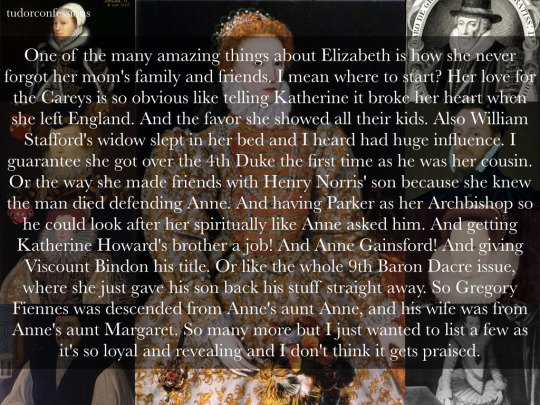
#elizabeth i#boleyn family#carey family#katherine carey#katherine knollys#henry carey#matthew parker#dorothy stafford#tudor confessions
17 notes
·
View notes
Text



Louvima Knollys grew up very close to the royal family. She was the daughter of Lord Francis Knollys that was a close friend of the British royal family. So close that he served as as Private Secretary to the Sovereign under both Edward VII (from 1901 to 1910) and George V (from 1910 to 1913).
In fact, Louvima was named after Edward VII and Queen Alexandra’s children. ”Louvima” was created from the first letters of the names of Edward’s three daughters: Louise, Victoria and Maud.
1st and 2nd photographed with Princess Victoria of Wales in 1898
3rd is from 1897 dressed up as a page boy to Princess Alexandra of Wales later Queen Alexandra
#louvima knollys#british royal family#royalty#nobility#alexandra of wales#queen alexandra#victoria of wales#princess victoria#fact of the day#history#photography#maud of wales#louise of wales#edward vii
58 notes
·
View notes
Text
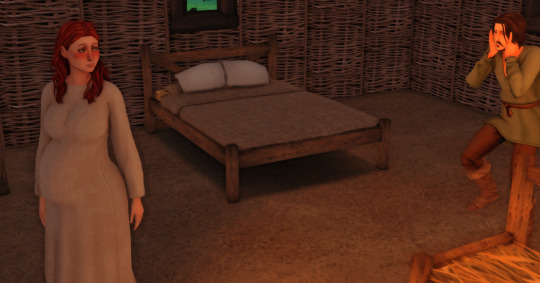

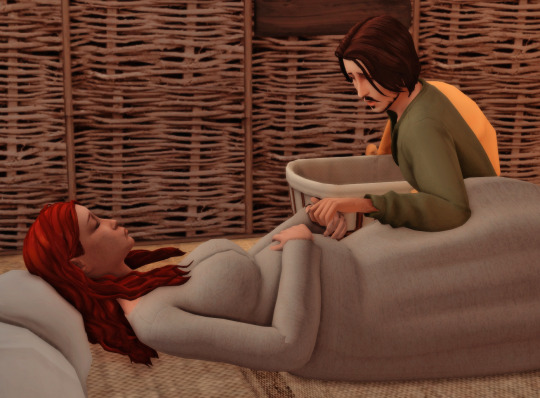
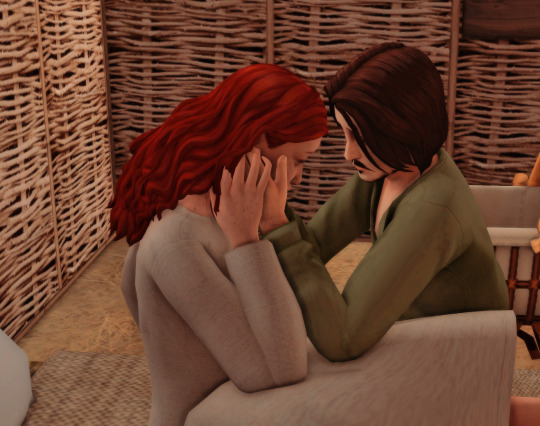
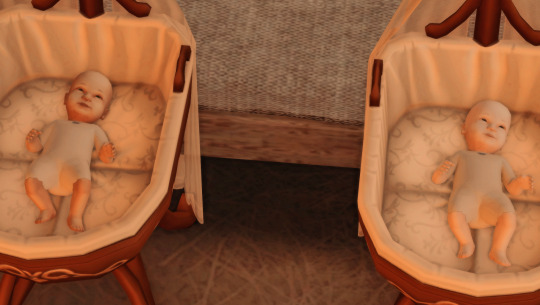

Summer - 1302
Late one night Margaret realized that it was time for the baby to come. In the early morning little Hugh was born and then Alaric followed surprising them.
(Mom and twins survived their rolls)
#sims 4#sims 4 gameplay#ultimate decades challenge#sims 4 decades challenge#ts4 decades#medieval legacy#knollys family#UDC 1302
32 notes
·
View notes
Text
i also think the secret tudor bastards thing that gets thrown around with whoever be it henry viii or elizabeth is due to the fact people don’t know or won’t acknowledge the english aristocracy shared a small gene pool, most of them were related to each other somewhere along the line and red hair is actually pretty common in britain (vs the rest of the world that is) and was even more so in the 16th century
#henry was a distant cousin to all his wives!#which wasn't even that odd as henry was a distant cousin to basically every gentry family in england and most of european royalty#like lettice knollys looks so much like elizabeth#yes she does because she's elizabeth's 2nd cousin and also distantly related to henry too
23 notes
·
View notes
Photo

“For Elizabeth, life at Court was becoming a nightmare. Overwhelmed by a sense of her own helplessness, she asked permission to retire to her own estates rather than endure the traumas of family Christmas. Many zealous Protestants had already gone into exile, among them Lady Katherine Knollys, the daughter of Anne’s sister, Mary Boleyn. Elizabeth wrote to wish her cousin Godspeed. Devastated by the happenings at her sister’s court, she signed the letter ‘Cor Rotto’-- Broken Heart.
'Relieve your sorrow for your far journey with joy of your short return, and think this pilgrimage rather a proof of your friends, than a leaving of your country. The length of time and distance of place, separates not the love of friends, nor deprives not the show of good will. An old saying, when bale is lowest boot is nearest; when your need shall be most you shall find my friendship greatest. Let others promise and I will do, in words not more in deeds as much. My power but small, my love as great as them whose gifts may tell their friendship’s tale, let will supply all other want, and oft sending take the lieu of often sights. Your messenger shall not return empty, nor yet your desires unaccomplished. Lethe’s flood hath here no course, good memory hath greatest stream. And to conclude, a word that hardly I can say, I am driven by need to write, farewell, it is which in one way I wish, the other way I grieve.
Your loving cousin and ready friend,
Cor Rotto.’”
Perry Maria. 1990. The Word of a Prince : A Life of Elizabeth I from Contemporary Documents
#BE couldn't give us catherine carey?? just jane grey calling her a whore??? i can't .#catherine knollys sorry#the author said katherine but i've read it as catherine only before this so idk#theladyelizabeth#primary sources#maria perry#marian
60 notes
·
View notes
Text
On This Day 17 Sep 1564, it is believed that Dorothy Devereux was born at Chartley Manor, Staffordshire.
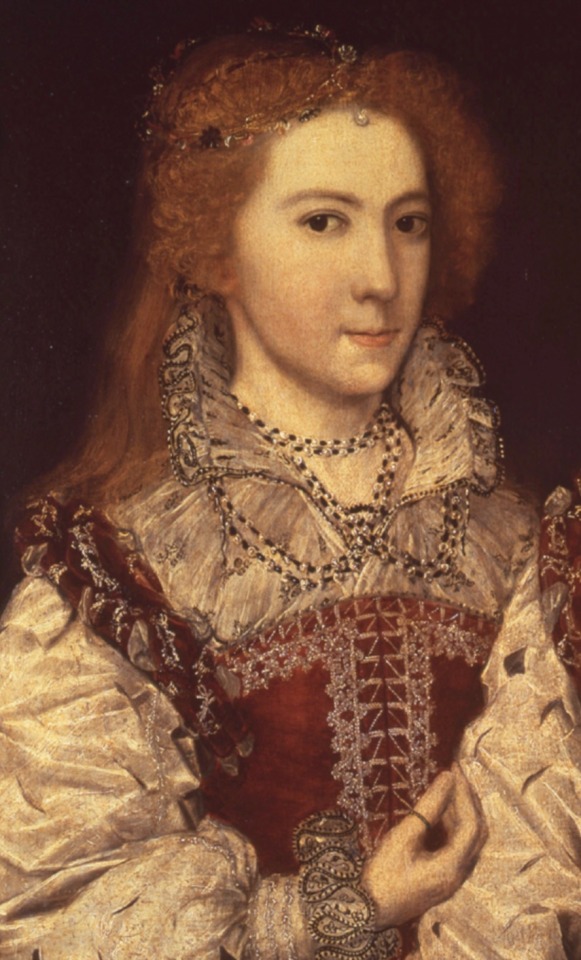
Dorothy was the younger daughter of Walter Devereux, Viscount Hereford and his wife Lettice Knollys, and was named after her paternal grandmother Dorothy Hastings.
Dorothy, along with her siblings, spent her childhood at Chartley - the principal seat of the Devereux family, being a late 15thc Manor House built nearby the abandoned and ruined Chartley Castle, 9 miles north-east of Stafford. The manor was surrounded by acres of woods and parkland, where the children would learn to ride and hunt.
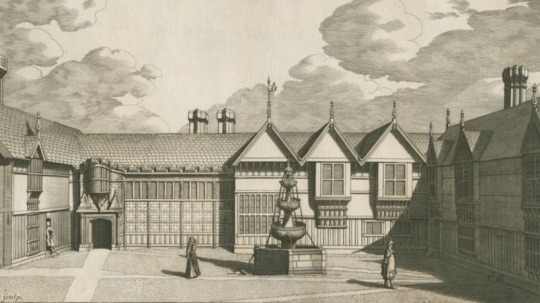
Dorothy was at Chartley when news of Walter's death in Sep 1576 reached the family. Dorothy then spent a year travelling with her mother Lettice and sister Penelope, including regular visits to Kenilworth Castle in which her mother, sister and other family members participated in Robert Dudley, Earl of Leicester's hunting parties.
In Feb 1578, as per Walter's will, Dorothy and Penelope were placed under the guardianship of the Earl and Countess of Huntingdon (Robert Dudley's sister Katherine), living primarily in York. It was here that they continued to receive a well-rounded humanist and 'strictly-Puritan' education.
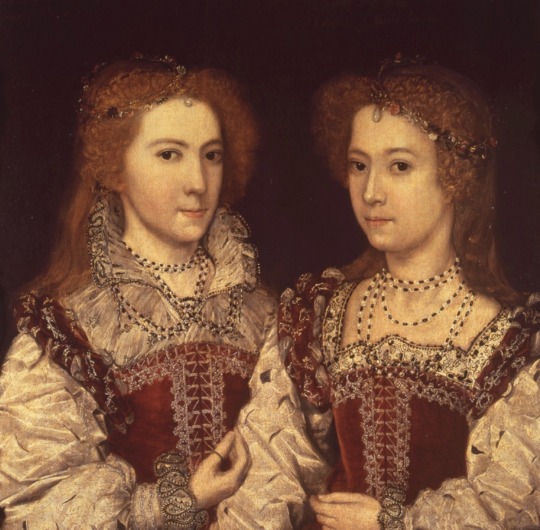
Penelope left for court in 1581, just after turning 18, leaving Dorothy in the care of the Huntingdons; it was around this time that the joint portrait of Dorothy and Penelope was painted, which was later hung at their stepfather's London home of Leicester House - “two ladyes in one picktwer, my La. Rich and my La. Doryt”.
#tudor england#the tudors#tudor#tudors#lettice knollys#tudor people#tudor women#the dudley women#tudor history#dorothy devereux#Penelope devereux#chartley#Robert dudley#history
2 notes
·
View notes
Text
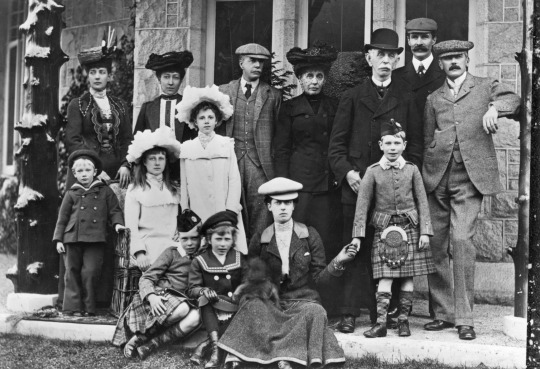
1904: A royal family gathering at Mar Lodge in Scotland Back row, from left, Queen Alexandra, Louise, Duchess of Fife, Duke of Fife, The Hon. Charlotte Knollys, Cunningham Graham, King Haakon Children in the middle row, from left, Prince Olaf, Lady Alexandra Duff, Lady Maud Duff Front row, from left, Edward VIII, Princess Mary, and Princess Victoria, holding Prince Albert's hand. (Photo by Hulton Archive/Getty Images)
22 notes
·
View notes
Text

This post is about a lady from the sixteenth century called Amy Robsart and this small portrait may be of her. It is known as The Beaufort Miniature, because it was part of collection which belonged to the Duke of Beaufort until it was auctioned in 1983, and is thought to be by Levina Teerlinc, a **female** miniature painter (wow!) However, according to this blog the miniature may also be of one of my favourite historical figures, Lady Jane Grey.
Amy Robsart became Lady Amy Dudley when, in 1550, she married Robert Dudley, Earl of Leicester, who is thought to have been a true love of Queen Elizabeth I. Sadly, Amy is primarily known for her fall down a flight of stairs in which she died, the circumstances of which have always been considered as suspicious. It was recorded as an accident, but it could have been suicide, or, she could have been pushed.
Acc. to good ole Wikipedia, the miniature belonged to the descendants of Lettice Knollys, Dudley's second wife. (There is no further info that I can find that links their family with the Duke of Beaufort).
Amy died in 1560, yet Dudley did not remarry until 1578. Was he waiting to see of Elizabeth would change her mind and marry him? When he did eventually marry again, his new wife was banished from court, reputedly due to Elizabeth's jealousy.
Info here about Levina Teerlinc from a blog I've just found called 'The History Jar' written by a published author called Julia A Hickey. I haven't had chance to read through it yet, am currently busy with other matters, but it's on the 'To Explore' list!
0 notes